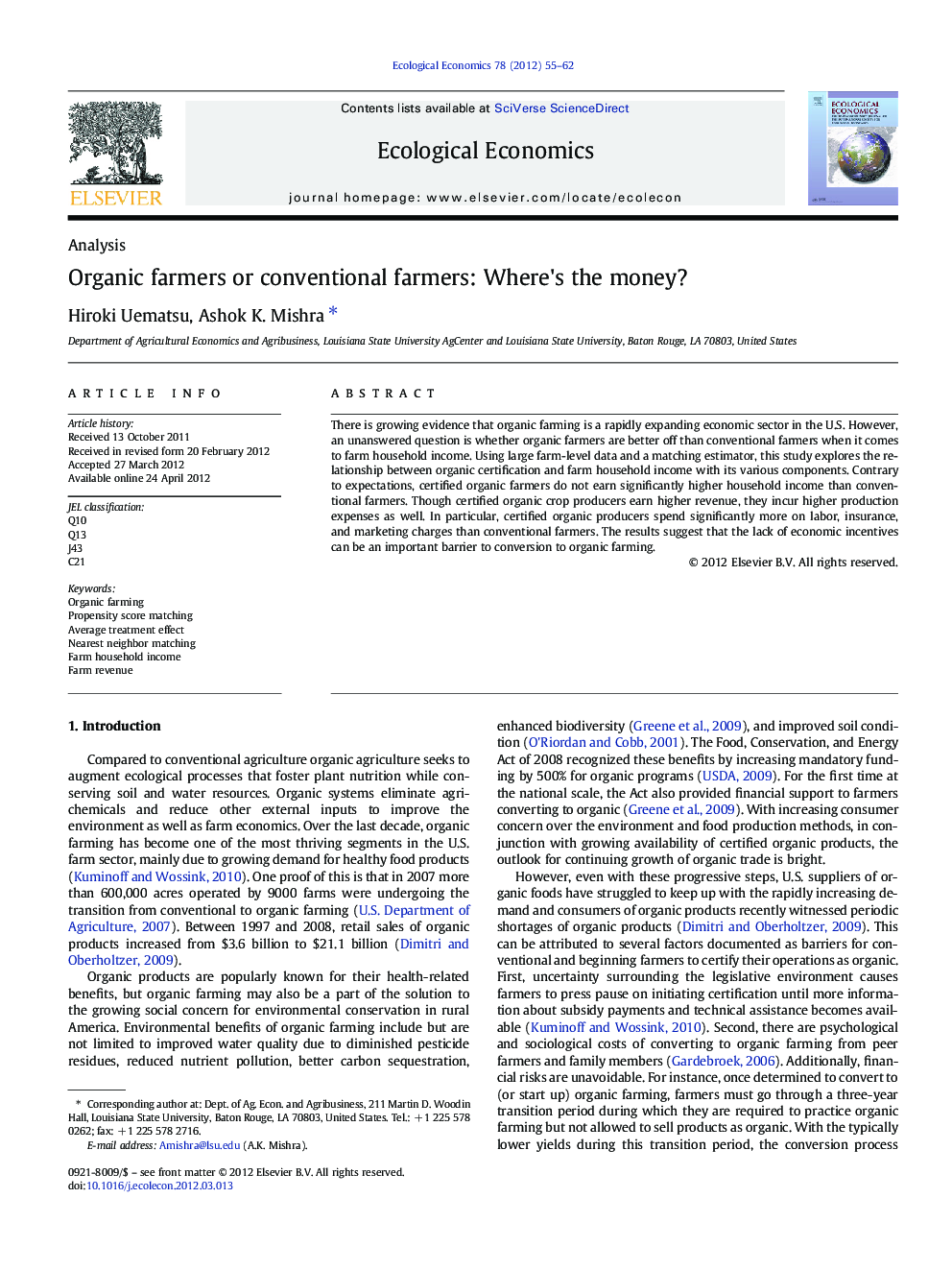| Article ID | Journal | Published Year | Pages | File Type |
|---|---|---|---|---|
| 5050305 | Ecological Economics | 2012 | 8 Pages |
There is growing evidence that organic farming is a rapidly expanding economic sector in the U.S. However, an unanswered question is whether organic farmers are better off than conventional farmers when it comes to farm household income. Using large farm-level data and a matching estimator, this study explores the relationship between organic certification and farm household income with its various components. Contrary to expectations, certified organic farmers do not earn significantly higher household income than conventional farmers. Though certified organic crop producers earn higher revenue, they incur higher production expenses as well. In particular, certified organic producers spend significantly more on labor, insurance, and marketing charges than conventional farmers. The results suggest that the lack of economic incentives can be an important barrier to conversion to organic farming.
⺠Few studies have examined profitability of organic farming in the U.S. ⺠We estimate the effect of organic certification on farm income and production cost. ⺠We employ a nonparametric matching estimator. ⺠Organic crop producers earn higher revenue, but they incur higher production cost. ⺠Organic crop producers spend more on labor, marketing and insurance.
